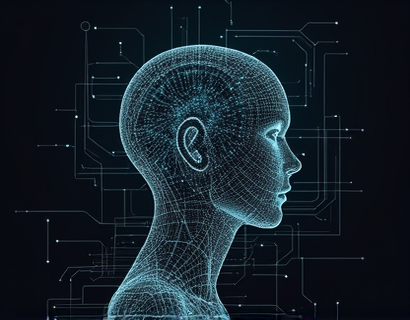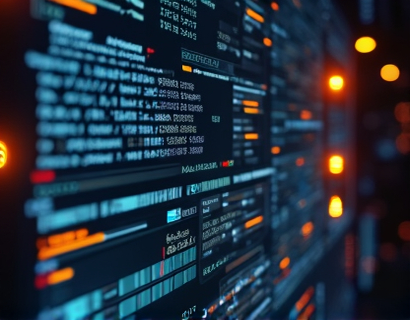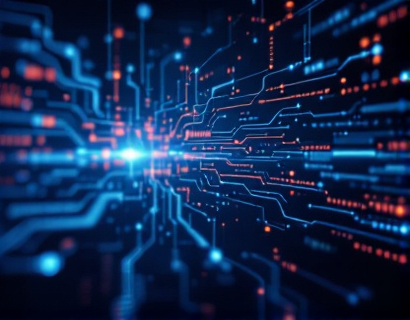AI-Powered Task Management: Elevating Personal and Professional Productivity with Intelligent Agents
In the rapidly evolving landscape of technology, AI-powered task management has emerged as a transformative force, redefining how individuals and businesses approach productivity. Intelligent agents, driven by advanced artificial intelligence, are revolutionizing the way tasks are managed, allowing users to focus on high-priority activities and significantly enhancing overall efficiency. This shift towards AI-driven task management is not just a trend but a fundamental change in how we handle both personal and professional responsibilities.
The core idea behind AI-powered task management is to leverage intelligent agents that can understand, predict, and automate tasks based on user preferences and contextual data. These agents are designed to learn from user behavior, adapt to new patterns, and continuously improve their performance over time. By integrating such technology into daily routines, users can experience a substantial boost in productivity, as mundane and repetitive tasks are handled seamlessly in the background.
Understanding AI-Powered Task Management
To fully appreciate the impact of AI-powered task management, it's essential to understand the underlying technology. At its core, AI task management involves the use of machine learning algorithms, natural language processing, and data analytics to create intelligent agents capable of task automation and optimization. These agents can interact with various digital tools and platforms, integrating seamlessly into existing workflows.
One of the key features of AI-powered task management is its ability to prioritize tasks based on urgency and importance. By analyzing deadlines, task complexity, and user preferences, intelligent agents can create a dynamic task list that ensures users focus on the most critical activities first. This prioritization not only helps in managing time more effectively but also reduces stress and increases overall job satisfaction.
Benefits for Personal Productivity
For individuals, AI-powered task management offers a range of benefits that can significantly enhance personal productivity. One of the most notable advantages is the ability to maintain a balanced life by efficiently managing both work and personal tasks. Intelligent agents can help users set and achieve personal goals, whether it's planning a vacation, managing household chores, or tracking fitness routines.
Moreover, AI agents can assist in time management by providing insights into how time is spent throughout the day. By analyzing patterns and suggesting optimal schedules, these agents help users maximize their productivity and minimize wasted time. For instance, an AI agent might recommend specific times for checking emails or social media, ensuring that these activities do not disrupt focused work periods.
Another significant benefit is the reduction of cognitive load. Managing a multitude of tasks and deadlines can be overwhelming, leading to mental fatigue and decreased productivity. AI agents take over the mental effort of remembering tasks, setting reminders, and tracking progress, allowing users to maintain a clear and focused mind. This mental relief can lead to improved creativity and better decision-making.
Enhancing Professional Productivity
In the professional realm, AI-powered task management is a game-changer for businesses of all sizes. For managers and team leaders, these intelligent agents can streamline project management, resource allocation, and team coordination. By automating routine tasks such as scheduling meetings, assigning tasks, and tracking progress, AI agents free up valuable time for strategic planning and high-level decision-making.
AI agents can also enhance collaboration by integrating with popular project management tools and communication platforms. They can automatically update team members on task statuses, notify them of deadlines, and provide real-time insights into project health. This level of automation ensures that everyone is on the same page, reducing misunderstandings and increasing overall team efficiency.
For employees, AI-powered task management means a more organized and less stressful work environment. By handling repetitive and time-consuming tasks, these agents allow employees to focus on core responsibilities that require human creativity and critical thinking. This shift not only boosts individual productivity but also contributes to a more engaged and motivated workforce.
Case Studies and Real-World Applications
To illustrate the practical benefits of AI-powered task management, consider a few real-world applications. In a marketing agency, an AI agent can manage the scheduling of social media posts, monitor engagement metrics, and suggest optimal posting times based on historical data. This not only ensures consistent brand presence but also optimizes reach and interaction rates.
In a software development company, AI agents can automate the assignment of coding tasks based on team members' availability and expertise. They can also track the progress of development milestones, alerting managers to potential bottlenecks and suggesting resource reallocation. This level of automation helps maintain a smooth workflow and ensures projects are completed on time and within budget.
For small business owners, AI-powered task management can be particularly transformative. These agents can handle everything from invoicing and customer follow-ups to inventory management. By automating these tasks, business owners can focus on growth strategies and customer relationships, leading to increased revenue and customer satisfaction.
Challenges and Considerations
While the benefits of AI-powered task management are clear, there are several challenges and considerations to keep in mind. One of the primary concerns is the initial setup and integration of AI agents into existing systems. This process requires technical expertise and may involve significant upfront investment. However, the long-term savings in time and resources often outweigh these initial costs.
Another consideration is the need for user trust and acceptance. Some individuals may be hesitant to rely on AI for task management due to concerns about privacy, data security, and the potential loss of control. To address these concerns, it's crucial to choose reputable providers that prioritize user data protection and offer transparent control over AI operations.
Additionally, the effectiveness of AI agents depends on the quality of data they are trained on. Biased or incomplete data can lead to suboptimal task management decisions. Therefore, continuous monitoring and refinement of AI models are essential to ensure they adapt to changing user needs and preferences.
Future Trends in AI-Powered Task Management
Looking ahead, the future of AI-powered task management holds exciting possibilities. One trend is the increasing integration of AI with other emerging technologies such as augmented reality (AR) and the Internet of Things (IoT). For example, AI agents could leverage AR to provide visual task guidance or use IoT devices to automate home management tasks.
Another trend is the development of more personalized AI agents that can understand and adapt to individual user behaviors and preferences at a deeper level. These agents will not only manage tasks but also anticipate user needs, offering proactive suggestions and support. This level of personalization will further enhance user experience and productivity.
Furthermore, the rise of decentralized AI systems and blockchain technology could lead to more secure and privacy-focused task management solutions. By leveraging blockchain, AI agents can operate in a trustless environment, ensuring that user data remains secure and tamper-proof.
Conclusion
AI-powered task management represents a significant leap forward in productivity enhancement, offering both personal and professional benefits. By automating routine tasks, prioritizing activities, and providing real-time insights, intelligent agents help users and businesses maximize their potential and achieve their goals more efficiently. As this technology continues to evolve, it is poised to become an indispensable tool in the modern workplace and daily life.











































